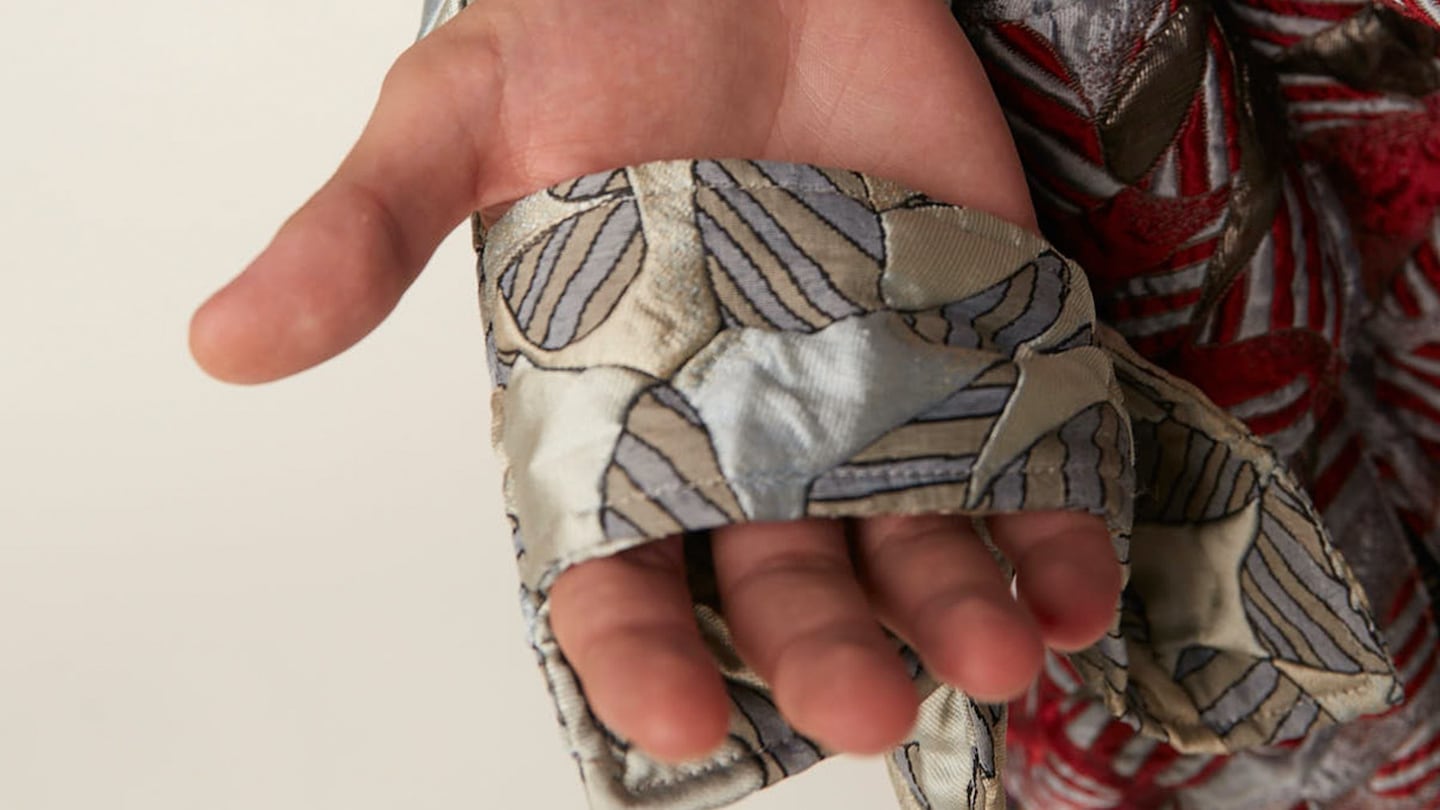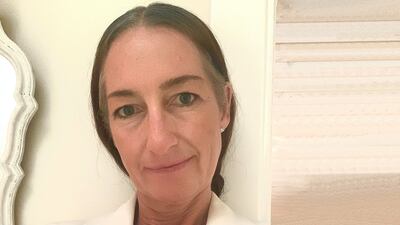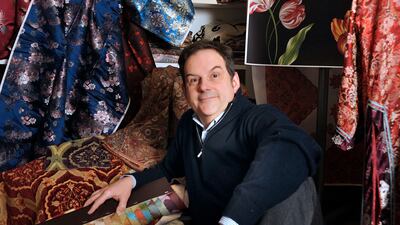
The Business of Fashion
Agenda-setting intelligence, analysis and advice for the global fashion community.

Agenda-setting intelligence, analysis and advice for the global fashion community.

COMO, Italy — Internationally renowned for its silk manufacturing and other examples of Italian artisanship, the northern region of Como is also home to the Accademia di Belle Arti Aldo Galli — one of the Istituto Europeo di Design's 11 global campuses across Europe and South America. To date, the fashion school has trained students from more than 100 countries and teaches approximately 2,000 students every year.
Acquired by IED in 2009, Accademia Aldo Galli offers a fine art lens to its courses within design, fashion, visual arts and restoration. To complement the Como campus’ undergraduate course in textiles, IED is launching a new Masters in Textiles starting January 2021, grounding the creative and strategic education in Made in Italy craftsmanship. The main topic areas of the course will focus on design, innovation and sustainability.
The school also collaborates with the companies and noted experts in the textile trade; the school's continuing global partnership programmes have connected students to over 200 businesses including LVMH, Kering, Valentino and Swarovski.
To hear more about the new course, BoF sits down with the Textiles MA course co-coordinators Sophie L. Dewulf, who specialises in the international system of the textile industry, and Fulvio Alvisi, a textile designer, with a long term knowledge and experience in the Como region and its textile district and market.

Sophie L. Dewulf, IED Textiles MA Course Co-Coordinator | Source: Courtesy
Sophie L. Dewulf, Textiles MA Course Co-Coordinator and International Textile Industry Consultant
It's about creating a new multi-dimensional professional who is grounded in the creative side but also in innovative, strategic management of this evolving industry.
Why has IED decided to launch the Textiles MA in Como?
The fashion and textile industry is in an incredible phase of transformation. Words like reset, restructure, rewire, re-examination are just a few buzz words we are hearing in the media and wider industry to express the need of disruptive change. We are really at a historical and epochal cross point in this industry and that means it needs new professionals.
Not only do we need to have new professionals, but we also need to create the space for new types of jobs. That is why Accademia Aldo Galli is launching the textiles MA — to really answer the needs of this ever-evolving business. It's about creating a new multi-dimensional professional who is grounded in the creative side but also in innovative, strategic management of this evolving industry.
What expertise will you bring to the course?
The aim of the Accademia is to create a next generation of professionals that are engaged in managing the fabric as a product. We will cover concept to design, development to launch and market rollout. This MA consists of touchpoints with three distinct areas: cultural, technological and the strategic.
Accademia Aldo Galli opted for Fulvio and me to coordinate in tandem to offer diversity in experience, knowledge and background for added value. Students today should not have just one point of view — it's important to discover multiple visions. We are aiming to coordinate this Masters with a variegated language of local and global, heritage and future, traditional and innovative, analogue and digital, because it is in the balanced mix of these opposite perspectives that we see the novelty and solution.
My responsibility is to guide the students in the international side of the fashion and textile business, provide a window onto the global scenario and connect them with the leading, global professionals.
What are the overarching themes and topics for the course?
One of the three major topics is design, which will include textile history and fabric culture courses, trend research and development processes with the intention to stimulate curiosity and encourage creative thinking. We also look at innovation, which touches on technological developments within textile manufacturing, in the supply chain, in the latest evolutions in raw materials and fibres.
Sustainability will be integrated in the MA so students can understand how it influences new fashion and textile business strategies.
Sustainability is an overarching topic in all our courses: it doesn’t make sense to study circular design without implementing sustainable material sourcing and responsible manufacturing practices. Sustainability is the culture needed to achieve evolution. This requires replacing the fixed mindset with a growth mindset. Sustainability will be integrated in the MA so that students can develop an understanding of complex and evolving topics and how they relate and influence new fashion and textile business strategies.
How have industry lessons from the pandemic inspired the formation of the course?
The pandemic has only confirmed what we have known for years and too subtly advocated — that the international fashion and textile industry was headed down the wrong path and it is time for a revision and restructuring of the entire system. We need to review the values and responsibilities that we have as an industry. It's high time for change.
We need to shift business attitudes so leadership guides with authentic values and responsible principles. I firmly believe in culture and mindset change but rooted within textile heritage and I think Italy is the best example of that. We need to learn from the past and see how we can make it better. It's about passion. It's about dedication. It's about craftsmanship that we can herald from generation to generation. Quality needs to be valued again.

Fulvio Alvisi, IED Textiles MA Course Co-coordinator | Source: Courtesy
Fulvio Alvisi, Textiles MA Course Co-Coordinator and Co-Founder of Alvisi e Alvisi
The ethical fabrication of each product will be more important in the future. For this, we need to have professionals that will be able to create product with sustainable practices in mind.
Why has IED decided to launch the Textiles MA in Como?
In Como, the key driving force is to make something new, to innovate, and Como offers this opportunity because it has a crossing of different cultures. Not only is it near the Swiss border, but it also has a large tourism industry so there is an environment of openness and a culmination of different nationalities.
It is one of the most creative areas of Italy, supported by its educational facilities. Textile schools in Como have trained technicians for more than 100 years. So, in this area, we can create a new type of professional for textile production, who will be creative and informed in the process as well as the product. We developed this MA with the notion that students will have to really experiment to test their ability and we will mix all these elements to see the best results.
What expertise will you bring to the course?
I have been a textile designer for 40 years. My company Alvisi e Alvisi, which I own with my sister, is well known in Como. While we're a small company, we export everywhere in the world. I have also been the president of the Italian Textile Designer Association for about 25 years. We organise a textile design show called Comocrea three times a year.
Together, our background and experience mean we know the district well and I have also seen how globalisation is dramatically changing the market. These elements are important because to be credible for the students is the spirit of IED and Accademia Galli. We need to transmit our experience, our background, our expertise. This is the key point.
What are the benefits of the Como location for students?
Como is not just a group of textile companies that produce fabrics, they do so by working with the latest technology and as a result they develop strong relationships with businesses in fashion and interiors, which all come to Como to buy their fabrics. It is the starting point because it is high quality, with extensive research and continuously developing the best.
We need to transmit our experience, background, expertise because to be credible for the students is the spirit of IED.
The products of this district are oriented towards the higher end of the market, which in turn has made it a popular destination to invest in new technology. The last big technological development in textile is digital print and around the world, the total amount of printed textiles produced with digital printing solutions only accounts for about 5 or 6 percent. In the district of Como, that reaches about 60 percent, which is why we have the research and development center for all the big players in this area.
How do you connect students to the industry?
We create connections through collaborations in which students can work on individual or team-led projects with several local companies throughout the year, to understand the development processes and build up the skills for product management. We also have connections with trade fairs including Milano Unica for fabrics and Salone del Mobile, the largest fair for interiors.
How industry lessons from the pandemic have inspired the formation of the course?
We know there is big change on the horizon but it's not easy to understand or imagine what will happen or what the long-lasting impact will be. Our life will be not the same. But if we remain optimistic, we can use learnings from the pandemic to push our drive for environmental change and sustainable developments.
The ethical fabrication of each product will be more important in the future. When you see a garment, it’s important you understand its impact first. That means the design, colours, fibres — every element. And we have to transmit all this emotion. For this, we need to have professionals that will be able to create innovative and elegant products with sustainable practices in mind.
This is a sponsored feature paid for by IED as part of a BoF Education partnership. To learn more about IED, please click here.
Related Articles:
[ Istituto Europeo di Design’s 'Hands-On' MethodologyOpens in new window ]
[ Nurturing Creative Individuality at IEDOpens in new window ]
From analysis of the global fashion and beauty industries to career and personal advice, BoF’s founder and CEO, Imran Amed, will be answering your questions on Sunday, February 18, 2024 during London Fashion Week.
The State of Fashion 2024 breaks down the 10 themes that will define the industry in the year ahead.
Imran Amed reviews the most important fashion stories of the year and shares his predictions on what this means for the industry in 2024.
After three days of inspiring talks, guests closed out BoF’s gathering for big thinkers with a black tie gala followed by an intimate performance from Rita Ora — guest starring Billy Porter.